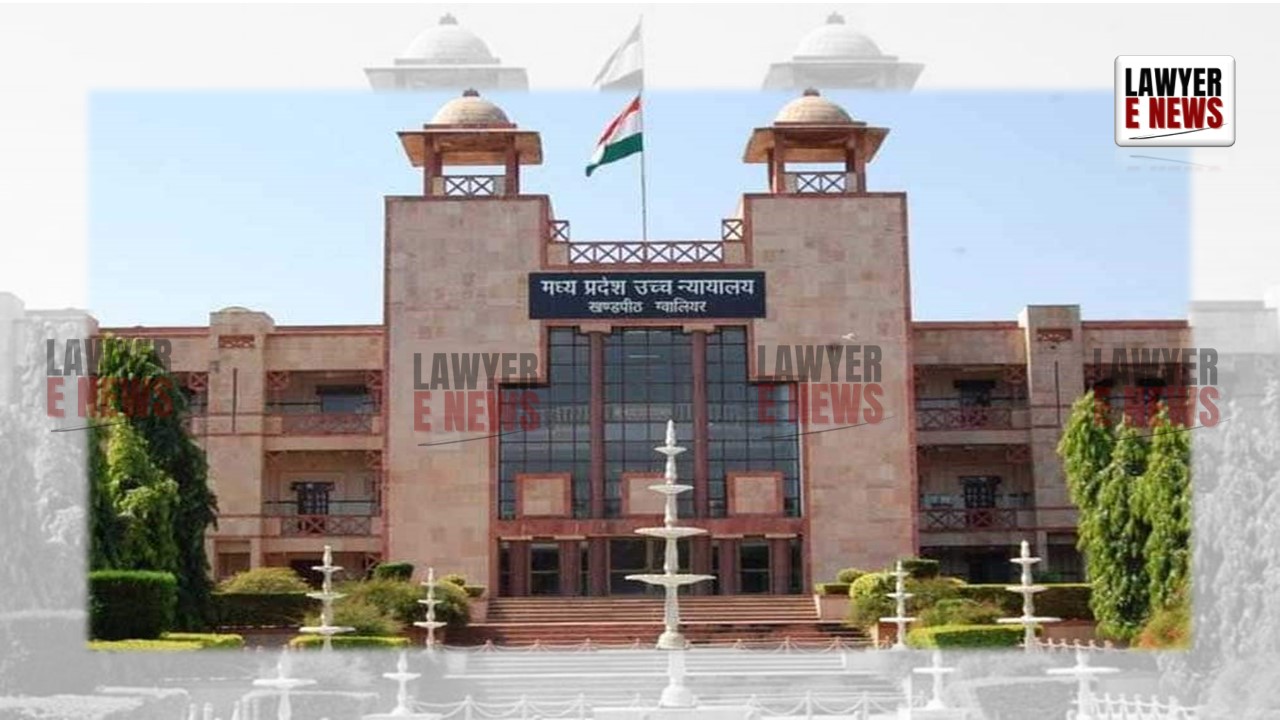-
by Admin
15 February 2026 5:35 AM



Madhya Pradesh High Court, comprising Justice Vivek Rusia and Justice Binod Kumar Dwivedi, delivered a ruling in Rakesh Agrawal v. Central Board of Direct Taxes and Others, holding that an order passed under Section 148A(d) of the Income Tax Act, 1961 was invalid due to procedural non-compliance. The Court found that the Income Tax Department failed to provide the petitioner, Rakesh Agrawal, with sufficient opportunity to respond before issuing a reassessment notice under Section 148.
The petitioner challenged the issuance of a reassessment notice, arguing that he was not granted adequate time to submit a detailed reply to the show-cause notice issued under Section 148A(b). The Court held that by prematurely issuing the final order under Section 148A(d) without waiting for the petitioner's response, the assessing authority had violated the procedural requirements prescribed by the statute. As a result, the Court set aside the order and remitted the matter back for reconsideration.
The petitioner, Rakesh Agrawal, a taxpayer holding PAN No. ABYPA6388C, was served a show-cause notice on March 24, 2024, under Section 148A(b) of the Income Tax Act for the assessment year 2020-21. The notice required him to respond to certain queries and furnish supporting documents. The petitioner appeared before the tax authorities on March 31, 2024, and requested a 15-day extension to gather the necessary documents and submit a detailed reply.
However, on April 5, 2024, the assessing officer issued a final order under Section 148A(d), treating the petitioner's adjournment request as his reply. On the same day, the authorities issued a reassessment notice under Section 148. Aggrieved by the lack of sufficient opportunity to respond, the petitioner approached the High Court under Article 226 of the Constitution of India.
The primary issue before the Court was whether the Income Tax Department had adhered to the procedural requirements under Section 148A(b), which mandates that an assessee must be provided with a minimum of 7 days and a maximum of 30 days to respond to a show-cause notice. The petitioner contended that the final order was issued without giving him a reasonable opportunity to submit a reply, thereby violating the principles of natural justice.
"Effective Opportunity of Hearing Must Be Provided Before Initiating Reassessment Proceedings."
The Court observed that the assessing authority had failed to provide an effective opportunity for the petitioner to defend himself, as required under Section 148A(b). The Court emphasized that procedural safeguards, such as allowing adequate response time, are essential to ensure fairness in tax reassessment proceedings.
"Once the statute provides an opportunity of hearing before the initiation of reassessment proceedings under Section 148, an effective opportunity of hearing must be given to the assessee. Issuing a final order before the expiry of the permissible response period undermines procedural fairness and the right of the petitioner to adequately defend," the Court observed.
The respondents argued that the petitioner had an alternative remedy under the Income Tax Act and should pursue the statutory appeal process. However, the Court noted that an order under Section 148A(d) is not appealable, leaving the petitioner without an alternative efficacious remedy. As a result, the Court held that the writ petition was maintainable.
"Since the order under Section 148A(d) is not appealable, the petitioner has no alternative efficacious remedy other than approaching this Court under Article 226 of the Constitution," the Court stated.
The Court analyzed the statutory framework of Section 148A(b) of the Income Tax Act, which requires a minimum of 7 days and a maximum of 30 days for the taxpayer to respond to a show-cause notice. The Court found that the assessing officer had disregarded this requirement by issuing a final order on the same date the petitioner submitted his reply, without allowing him the full response period he had requested.
The Court observed that procedural fairness is a fundamental principle, particularly in reassessment proceedings that may have significant financial implications for taxpayers. By issuing the final order prematurely, the Income Tax Department had deprived the petitioner of a meaningful opportunity to be heard, rendering the order under Section 148A(d) procedurally unsound.
The Court referenced the decision in Laxminarayan Patidar v. Income Tax Officer, where it had previously emphasized the importance of procedural compliance in reassessment proceedings. The Court reiterated that any deviation from the prescribed procedure, especially when it affects the taxpayer's right to respond, renders the proceedings invalid.
Concluding that the procedural requirements under Section 148A(b) had not been followed, the Court set aside the impugned order dated April 5, 2024. The Court remitted the matter back to the assessing officer for fresh consideration, directing the authority to allow the petitioner a fair opportunity to respond to the show-cause notice in accordance with the prescribed time limits under the Income Tax Act.
"In view of the above, the impugned order dated 05.04.2024 is hereby set aside without entering into the merits of the case. The matter is remitted back to the respondents to decide the show-cause notice issued under Section 148A(d) afresh after providing an adequate opportunity of hearing to the petitioner," the Court ordered.
The Madhya Pradesh High Court's ruling in Rakesh Agrawal v. Central Board of Direct Taxes underscores the importance of procedural fairness in tax reassessment proceedings. The Court's emphasis on the need for effective opportunity of hearing under Section 148A reinforces the procedural safeguards provided to taxpayers, ensuring that they are given adequate time to respond to tax authorities' queries before a reassessment notice is issued.
This judgment serves as a reminder to tax authorities to adhere strictly to statutory timelines and procedural requirements, especially in matters where taxpayer rights and obligations are at stake.
Date of Decision: November 4, 2024
